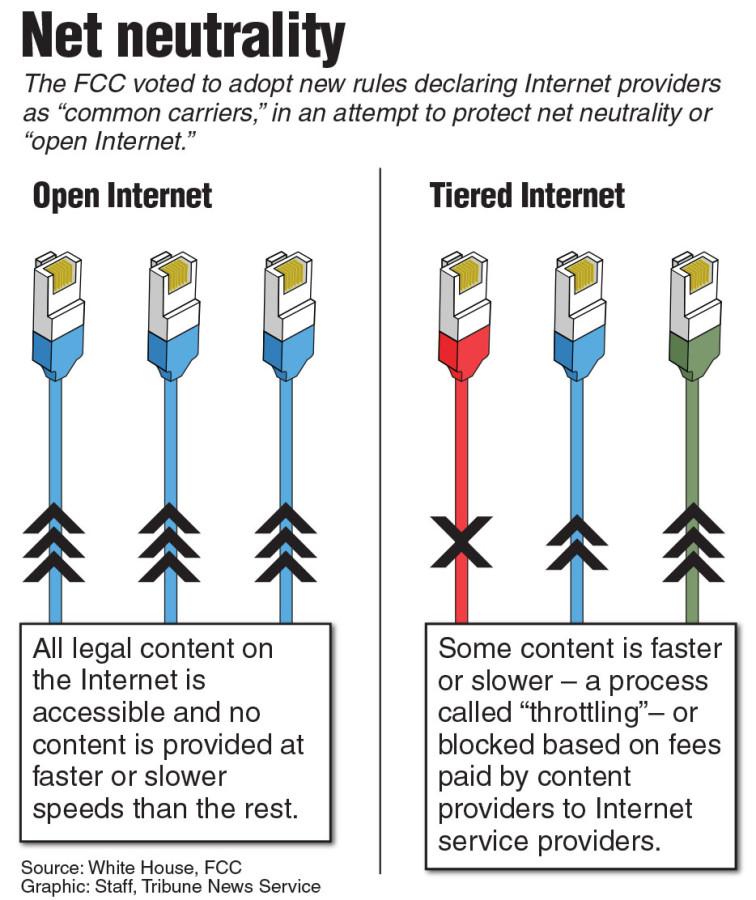Big-name Internet companies pose threat to net neutrality; FCC strives to level playing field
LEVELING OUT: In February, the FCC approved regulations for web providers that ensures all Internet-users an “open Internet,” in which all content is accessible at equal speeds. However, Internet provider tycoons such as Comcast and Time Warner Cable are trying to tamper with this new policy. There are many misconceptions about net neutrality, such as Internet regulation.
April 20, 2015
The Internet may be about to change for the better, but not if the Internet companies have anything to say about it.
Back in February, the FCC approved new regulations for Internet providers that will preserve the openness of the web and protect consumers from the shenanigans of Internet companies like Comcast and Time Warner Cable.
Net neutrality, in a nutshell, is about keeping websites from being given preferential treatment over others.
The Internet’s a great thing. The Internet companies? Not so much. There are areas of the country right now that are basically monopolized by one company. Most of the time, this essentially gives them free reign to treat their customers like crap, knowing that their customers have no other choice. These new regulations would put an end to that, opening up competition and giving consumers more options.
This is the sort of thing the FCC has been trying to do for years; the only reason net neutrality hasn’t actually become a reality up to now is the court system, which has overturned various attempts over the years to enforce net neutrality.
I’d like to take a moment now to quash a couple of misconceptions about what’s going on.
A while ago, there were commercials floating around that basically said, “Don’t let the FCC reclassify the Internet, or we’ll have to pay taxes on the Internet!!” If that claim had absolutely any truth to it, then trust me, taxes would be the least of our worries. It’s pretty much the cable companies at work, trying to misinform people so they can maintain the status quo.
Next, and perhaps most importantly: this is NOT about regulating the Internet. As much as the government would probably like to be able to do that, that’s outside the jurisdiction of the FCC; this is exclusively about putting some regulation on the Internet providers to keep them from running wild. The Internet as you know it now is probably not going to change all that much; if anything, it might even get a bit faster once these rules come into effect.
While these rules take effect without having to go through Congress, they might still be able to completely destroy these new regulations anyway. A good chunk of Congress right now is financially supported by companies like Comcast. This pretty much means that the government isn’t working in the interest of the people of the United States; instead, it’s working in the interest of big business. Congress has actually tried to keep the FCC from regulating Internet providers as recently as January, so legislators becoming involved in this saga is a legitimate concern. Long story short, Congress is probably going to do whatever they can to keep Comcast and other Internet providers running rampant until the end of time.
For now, though, we can rest a little bit easier at night knowing that we’ll actually be able to get good Internet. It’s not much, but it’s a start.






